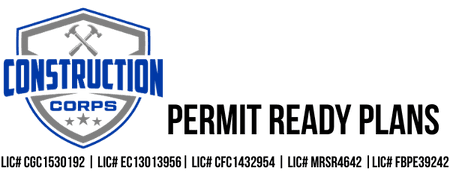Expert Advice: Common Mistakes to Avoid in Permit Application
Understanding the Importance of Permit Applications
Applying for a permit can often be a daunting task, especially if you're unfamiliar with the process. Permits are essential for ensuring that projects comply with local laws and regulations, which help maintain safety and order in communities. Whether you're planning a home renovation or starting a new business, understanding the permit application process is crucial to avoid unnecessary delays and complications.

Failure to Research Local Regulations
One of the most common mistakes in permit applications is not thoroughly researching local regulations. Different jurisdictions have unique requirements, and failing to identify these can lead to rejected applications. It's essential to check with your local government or municipal office to understand the specific permits you need for your project.
Additionally, many areas have updated their procedures in recent years, so relying on outdated information can be detrimental. Make sure to access the latest resources and guidelines available on official websites or consult with experts who are familiar with local laws.
Incomplete or Inaccurate Documentation
Another frequent error is submitting incomplete or inaccurate documentation. Permit applications often require detailed plans, specifications, and supporting documents. Missing or incorrect information can significantly delay the approval process.
To avoid this, carefully review the application requirements and double-check all documents before submission. It may also be beneficial to hire a professional, such as an architect or engineer, to assist with preparing these documents accurately.

Ignoring Timelines and Deadlines
Permit applications are time-sensitive, and ignoring timelines can result in significant setbacks. Many projects have specific deadlines for submission, and processing times can vary greatly depending on the complexity of the application and the backlog of the issuing office.
It's crucial to plan ahead and allow ample time for each step of the process. Submitting your application well in advance of any project start dates helps accommodate potential delays and ensures you're not stuck waiting at critical stages of your project.
Overlooking the Need for Multiple Permits
A common oversight is assuming that a single permit covers all aspects of a project. In reality, different parts of a project may require separate permits. For example, building a new structure might need a construction permit, a plumbing permit, and an electrical permit.

Consulting with local authorities or professionals can help identify all necessary permits. Obtaining all required permits before starting your project will prevent legal issues and potential fines down the line.
Lack of Communication with Authorities
Effective communication with local authorities is vital throughout the permit application process. Many applicants make the mistake of assuming that once their application is submitted, their work is done. However, staying in contact with the relevant department can provide updates on your application's status and address any issues promptly.
If you encounter any roadblocks, don't hesitate to reach out for clarification or assistance. Building a good rapport with officials can also facilitate smoother processing of future applications.
Conclusion: Avoiding Common Pitfalls
A successful permit application involves thorough research, accurate documentation, adherence to timelines, understanding the need for multiple permits, and maintaining open lines of communication. By avoiding these common mistakes, you can ensure a smoother process and set your project up for success.
Remember, investing time and effort into understanding and navigating the permit application process can ultimately save you from costly errors and delays, allowing your project to proceed smoothly and efficiently.
